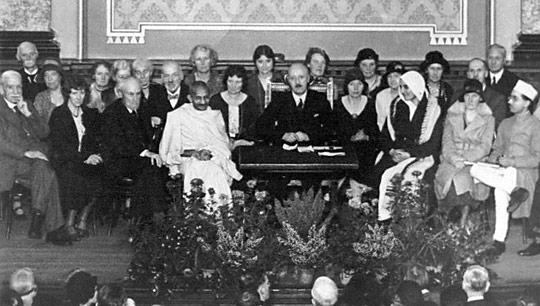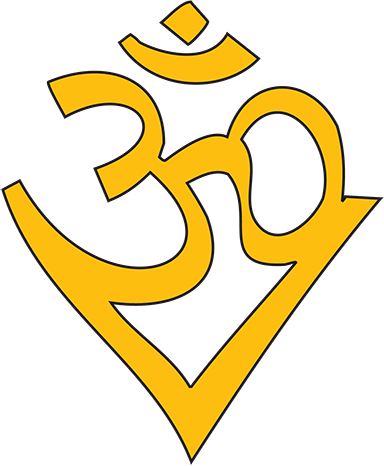
Like many great men and women in history, Gandhi’s childhood was pretty ordinary. He was no child prodigy: it was circumstances that conspired to transform him into a seeker of truth and a campaigner for justice and rights. Gandhi’s family decided to send him to London to study Law, which apparently would make it easier for him to get a job. However foreign travel was frowned upon in those days and Gandhi’s mother would not permit him to go. She relented only after taking Gandhi to a Jain monk who made him make three vows: that he would never eat meat, indulge in any sexual relationships – Gandhi was already married and had a child – and not consume alcohol.
On 4 September 1888 Gandhi set sail for Southampton. On the steamer Gandhi was befriended by an elderly Englishman, who urged him to eat meat. Gandhi politely refused and survived on food he had brought from home. He had been asked to collect certificates from people confirming that he was a vegetarian and he duly asked the elderly gentleman to write him one, which he gladly did. Gandhi had several letters of introduction to people in London, among whom were a Dr Mehta and Dadabhai Naoroji. Dadabhai Naoroji went on to become the first Indian MP, representing Finsbury Central for the Liberal Party in 1892. After docking at Southampton Gandhi arrived in London and stayed at the Victoria Hotel. Throughout the journey from Mumbai Gandhi had been accompanied by a Mr Majumdar and they were met by Dr Mehta at Victoria. Dr Mehta arranged for Gandhi to stay with a friend in Richmond, Surrey. About a month later Dr Mehta found him accommodation with an Anglo-Indian family living at 20 Barons Court, West Kensington. Gandhi’s vegetarianism continued to cause a problem. He writes in his autobiography that although he was of small build he had a voracious appetite! He lived mainly on bread. The Anglo-Indian lady had two daughters, who would often press on him a few more slices of bread, little knowing that but for his shyness Gandhi could have finished the whole loaf!
One day walking on the streets of London he came across Central Vegetarian Restaurant at 16 Saint Bride St, just off Farringdon St. Gandhi wrote in his autobiography that he was as overjoyed at the sight of the restaurant as a small child would be on receiving a new toy! Before entering he saw a book by Henry Salt entitled Plea for Vegetarianism. He bought it and proceeded to have his first hearty meal in London. After reading Henry Salt’s book Gandhi was converted to the vegetarian cause for ever. He later became the secretary of the Bayswater branch of the Vegetarian Society, which gave him his first experience of addressing meetings. Gandhi’s vegetarianism brought him in touch with many like-minded people. He was introduced to the Theosophical Society and there he met Madame Blavatsky and Mrs Annie Besant. He also came into contact with George Bernard Shaw. These people were radicals and the leading lights of the time. Theosophical Society members encouraged Gandhi to join in reading the Bhagvad Gita, the holy book of Hindus, which sparked his interest in religion. (Years later when Gandhi attended the Round Table to negotiate India’s independence he addressed a gathering of the London Vegetarian Society. It was on 20 November 1931 and the topic of his talk was The Moral Basis of Vegetarianism.) On 10 June 1891 Gandhi qualified as a barrister and registered himself in the High Court by paying two shillings and sixpence. Two days later he set sail for Mumbai, then known as Bombay.
Gandhi’s vegetarianism played a huge role in what he became. His nascent ideas were formed by coming into contact with the leading intellectuals of the time, who also happened to be vegetarian. These people wanted a world order where there was justice and freedom for the oppressed, and animals also figured prominently in their idea of a better world. Had Gandhi’s mother not insisted that he abstain from meat-eating, which was an unshakable article of his Hindu faith, Gandhi would not have become a Mahatma – a great soul. Let all mothers follow her example and bring up their children as vegetarians. Gandhi would also have been pleased to know that almost 90 years after he first set foot in England an Indian Vegetarian Society would be formed in London. It would organize huge campaigns and rallies and bring thousands of people to the vegetarian fold, helping vegetarianism become mainstream in the UK.

Recent Comments